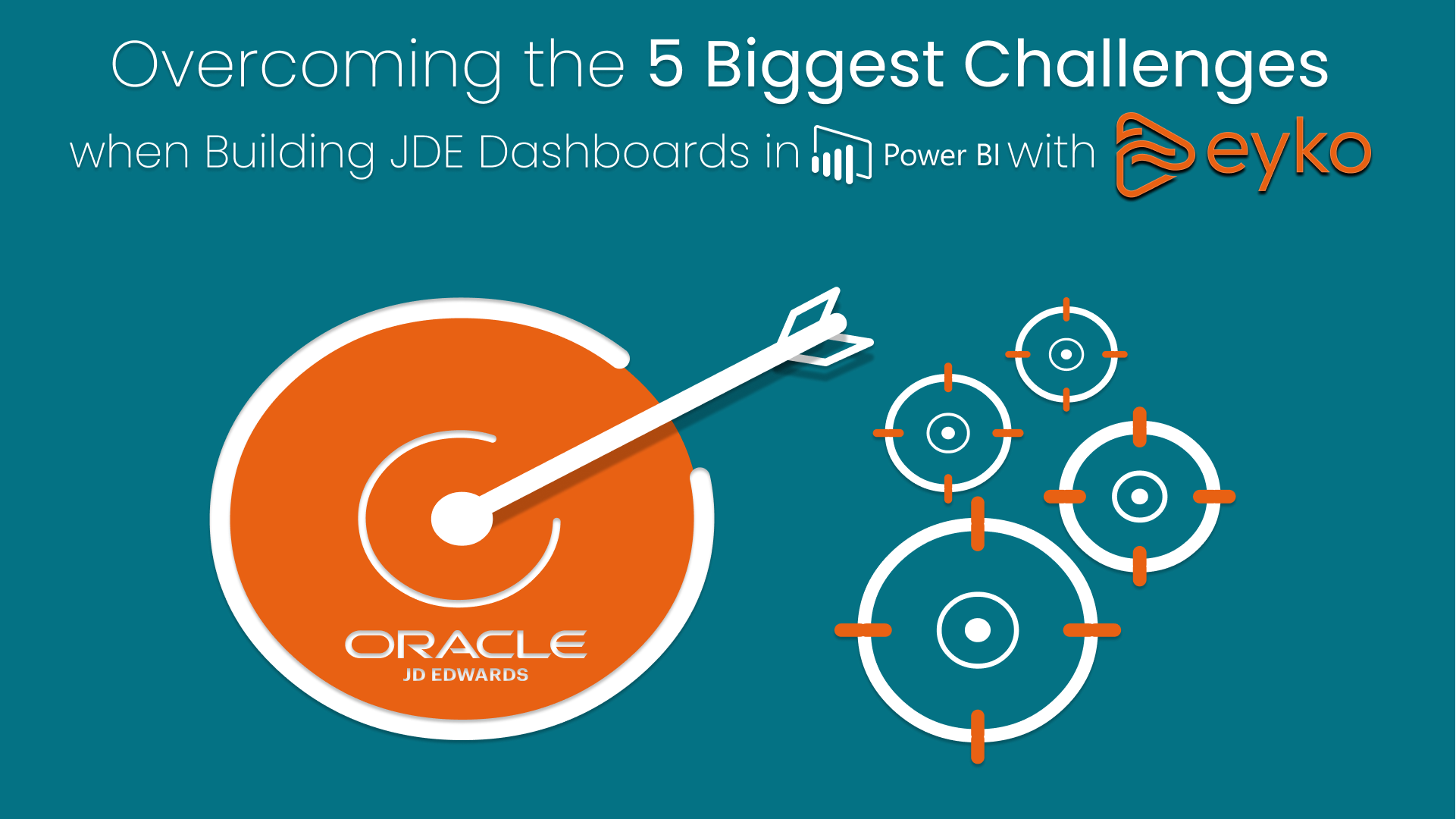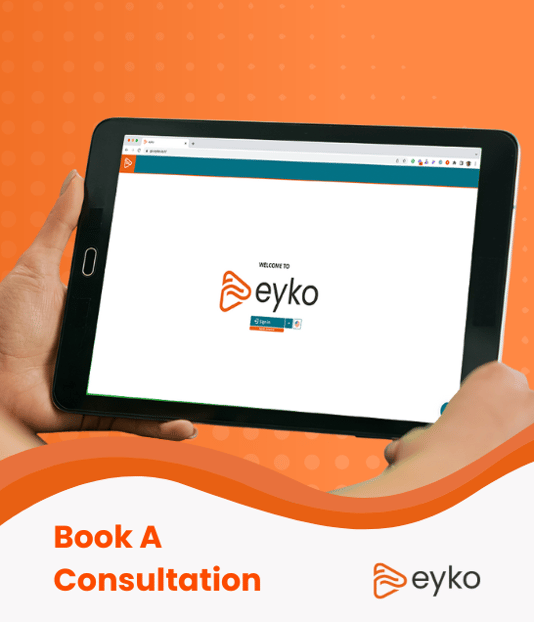Don't Let Your Archive Data Impact Your Migration to Oracle Cloud ERP
Introduction
In the ever-evolving world of modern business, embracing a cloud-based Enterprise Resource Planning (ERP) system is no longer just a trend—it's a necessity. Staying ahead of the competition and maintaining agility in today's fast-paced landscape demands a shift towards cloud-based ERP solutions. Yet, as organizations embark on this crucial journey, they frequently encounter a common roadblock: what should be done with the troves of archive data?
Dismissing it is not an option, as it carries legal and operational implications. On the flip side, loading the brand-new ERP system with years upon years of historical data can lead to a slew of issues, such as escalating costs, data fragmentation, and performance bottlenecks.
Fortunately, there is a solution: eyko. In this article, we'll explore how eyko can help you overcome these challenges and streamline your ERP migration.
Why Archive Data in the First Place?
You have probably been using your old ERP system for a significant period of time, and while you have probably done many upgrades and possibly archived some data, the migration to a new Cloud-based ERP system offers people the opportunity for a fresh start.
For many, they view this more as a new implementation than a migration—an opportunity to clean up all the sticking plasters that have been applied to the old system as business processes evolved or companies were acquired or divested along the way.
Streamline Business Process
One of the most common things people do as part of the migration is to implement a new chart of account structure. While this makes perfect sense, it adds complexity to the data migration process. Obviously, you will need to clean and align the data that is being migrated to the new system, but what do you do about the data that is being archived?
One of the benefits of archiving is that you don't need to clean and align this data. However, if you ever feel you will need to combine the archive and production data for reporting and analysis, then reporting over two different data structures can pose significant downstream problems for people.
Improving System Performance
One of the benefits of moving to a new cloud-based ERP system is the potential improvements in system performance that can come from being on a scalable platform no longer limited by physical limitations of server performance. While it's comforting to know your Cloud compute instance can deliver performance way above what you previously experienced, loading it with 20 years of history will quickly turn a fast train into a slow train again. Given the growth in data volumes, it makes sense to implement an aggressive archiving policy as part of moving to your new cloud-based ERP system.
Reducing Cloud Storage Costs
Storing unlimited years of history on your old on-premise systems was no big deal. The hardware was a sunk cost, and if you had the storage and performance, nobody really gave it a second thought. Moving your ERP data to the cloud means monthly fees for storage and processing. It's no longer a sunk cost and requires the business to decide. Do we archive this data in a low-cost on-premise or cloud environment, or do we keep it as part of our Cloud ERP environment and continue to pay growing monthly costs just to have this data available?
Challenges in Deciding What to Archive
- Seamless Access to Archive Data: When migrating to a new ERP system, users are often hesitant to let go of their access to historical data. Therefore, a strategy that allows users to seamlessly generate reports and ad hoc inquiries over the Archive data helps to allay any fears they might have about what they might be losing as part of the migration and archiving strategy.
- Timeless Reporting: Analyzing historical data is crucial for making informed business decisions. However, different analysis time spans can impact your archiving strategy. Providing a way to seamlessly report over archive data in one system and live data in another system, regardless of whether they reside in the cloud or on-premise, removes resistance around years of data goes into the production system and what years of data goes into the archive.
- Mapping Data Between Systems: Implementing a new chart of account data model for your new production system and leaving the archived data in the old structure while maintaining a live data mapping between the two structures not only simplifies the migration process but also gives people the confidence that they can continue to analyze the business against both the old and new Chart of Account structures.
How eyko Simplifies Archive Data for ERP Migration
eyko offers a groundbreaking solution to the historical data challenge. By seamlessly integrating archive and live data, regardless of whether they reside in the cloud or on-premise, eyko eliminates data silos and simplifies the ERP migration process. With eyko, you're not just generating reports; you're creating a unified data ecosystem where historical and current data coexist as if they were all in one system.
The Key Benefits of eyko's Solution:
- Master Data Management: eyko leverages Artificial Intelligence (AI), Machine Learning, and Natural Language Processing (NLP) to automate data cleanup during the migration, ensuring a clutter-free ERP system.
- Reduced Migration Complexity: eyko's integrated reporting and analytics approach significantly reduces the complexity of migrating to a new ERP system, seamlessly incorporating data from both the new and archive systems regardless of structure or location.
- Bridging the Old and New Worlds: eyko's data mapping capability enables different data structures in old archive data and a new streamlined data structure in the new system without compromising data integrity.
- Choice of Data Location: eyko allows you to blend both Cloud and on-premise data, providing the opportunity to optimize Archive storage costs while maintaining data availability.
- Comprehensive Historical Perspective: eyko ensures you have full visibility of your entire business operation back to day one, regardless of the amount of history you bring into your new ERP system.
- Future-Proofing Your Data: With eyko, you can confidently move forward, knowing that you have not sacrificed your historical data. You're prepared to tackle any reporting challenges that may arise in the future, without compromising the efficiency of your new ERP system.
In conclusion, the integration of archive and production reporting is a game-changer in the world of ERP migration. eyko's innovative solution not only simplifies the migration process but also empowers businesses to harness the full potential of their historical data, creating a unified data ecosystem across both their Archive and production data that sets the stage for a successful ERP migration to the Cloud. Embrace the future of ERP migration with eyko and unlock the power of your data.
Share this
You May Also Like
These Related Stories

Making Smart Choices in Your ERP Migration: Keeping Costs in Check

Overcoming JDE Power BI Challenges with eyko

